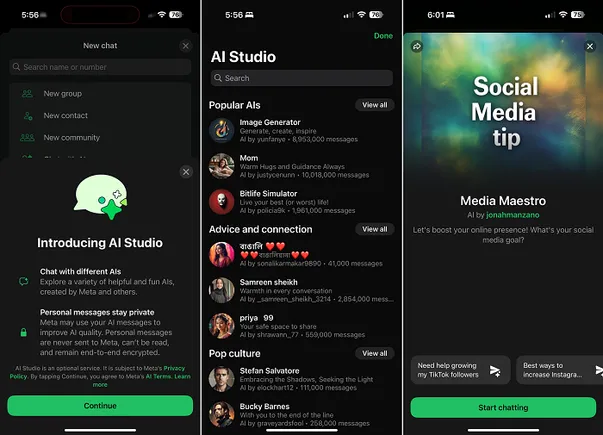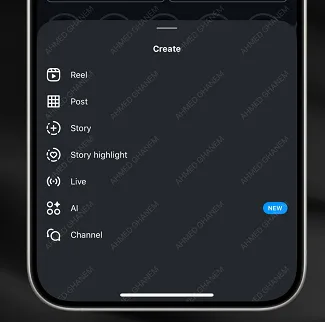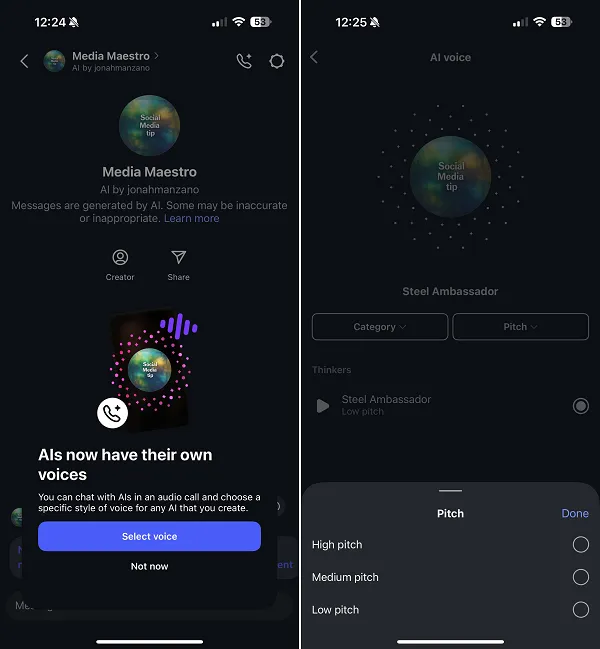Meta Expands Integration of AI Bot Profiles Within Its Applications

Meta’s AI Integration: What You Need to Know
Meta is moving forward with its plan to incorporate artificial intelligence (AI) into platforms like Facebook, Instagram, Messenger, and WhatsApp. This initiative has stirred a variety of reactions, ranging from curiosity to concern among users.
New AI Features in Messenger and WhatsApp
Messenger’s AI Studio
Recently, Messenger introduced an "AI Studio" feature, which some users can now access. This tool allows users to interact with different AI characters tailored for conversation. Within the AI Studio, both desktop and mobile users can manage and create their own AI characters, each with unique personalities and interaction styles.
WhatsApp’s AI Integration
Similar developments are happening on WhatsApp, where an AI Studio feature is also being rolled out. This functionality will help users discover AI bots to chat with anytime they wish.

Enhanced Customization on Instagram
AI Creation Tools
On Instagram, users can also create AI characters through new features in the "Create" tools. These tools allow for user-defined characters that can serve various purposes and engage with others on the platform.

Voice Functionality Coming Soon
In addition to character creation, users will soon have the ability to assign voices to their AI characters. This is part of Meta’s strategy to enhance user engagement through interactive AI.

The Potential Impact of AI Interactions
While the idea of engaging with AI bots may seem exciting, it raises important questions about the nature of social interactions. Connecting with AI characters could lead to feelings of loneliness or dependency on non-human engagement. There’s a concern about the psychological effects of substituting AI for real human connections.
Meta’s Ambitious Goals
In a previous announcement, a Meta representative outlined a plan for bringing millions of AI characters into their apps, creating profiles, and allowing these bots to participate in social interactions similar to real users. Many people may not even realize they’re conversing with AIs, which could lead to inflated engagement metrics and advertising revenue for Meta.
Ethical and Mental Health Concerns
The incorporation of human-like AI profiles raises ethical questions. There are fears about the potential for mental health issues, particularly among younger users who might confuse AI interactions with actual human relationships. Similar concerns have previously been documented concerning social media engagement and its impact on mental health.
Conclusion: The Future of AI in Social Media
Meta is pushing the boundaries of technological innovation by integrating AI into its platforms. While this may drive user engagement and revenue, it also demands careful consideration of the mental and emotional repercussions of such interactions. The introduction of AI characters could redefine how social media functions, creating a new landscape that feels both exciting and uncertain. As developments unfold, users are left to navigate the implications of AI in their social interactions.






